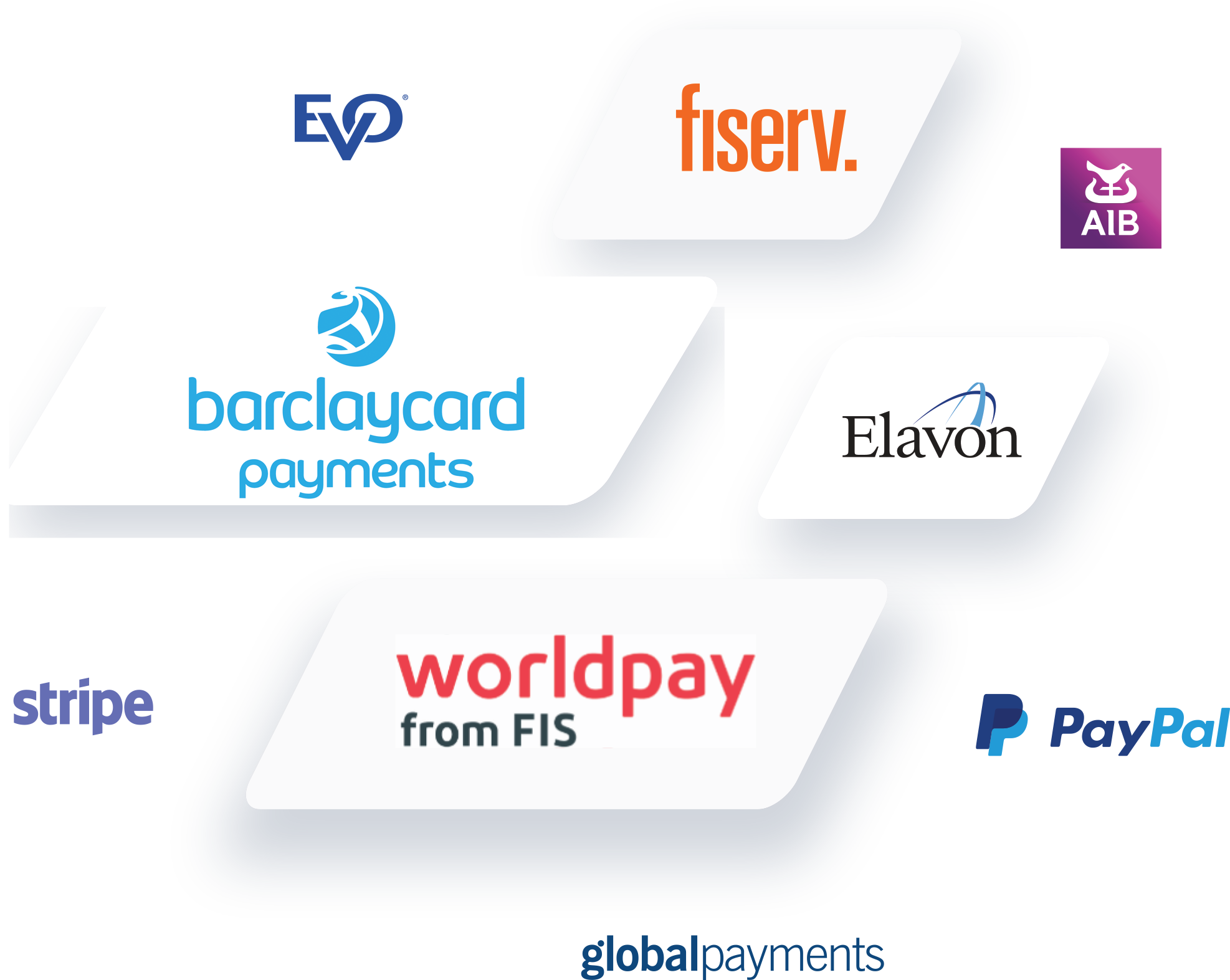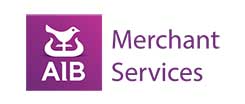Merchant Service Providers
A merchant services provider plays a critical role in the operation of businesses by enabling them to accept and process payments from their customers. These providers facilitate the connection between a business, the customer’s bank, and the payment processor, ensuring seamless transactions across a variety of payment methods. Whether your business is brick-and-mortar, online, or both, a reliable service provider is an indispensable asset.
What Is a Merchant Service Provider?
A merchant services provider is a company that offers businesses the infrastructure and services necessary to process payments. They serve as an intermediary between your business and the financial institutions involved in transactions. By working with a provider, businesses can accept payments via credit and debit cards, as well as other methods such as mobile payments and contactless payments. These services are critical for businesses of all sizes and industries.

Importance of Merchant Service Providers
Without a service provider, businesses would find it difficult, if not impossible, to handle electronic payments. In today’s fast-paced digital world, the ability to accept card payments—both online and in-person—is essential to remain competitive. These providers ensure that businesses can process payments securely, giving customers confidence when making purchases.
In addition to payment processing, merchant services often offer tools that enhance a business’s operations, such as inventory management, POS systems, and mobile card readers. For online businesses, these providers may offer payment gateways that enable seamless online payments and protect sensitive customer information during transactions.
Choosing the Right Merchant Service Provider
Selecting the right merchant service provider can have a profound impact on your business’s success. Different providers offer a variety of services, from basic payment processing to more advanced features like mobile payments, card readers, and integrations with third-party software.
When choosing a provider, it’s essential to consider several factors:
1. Transaction and Monthly Fees
One of the key considerations when selecting a merchant service provider is the cost. Providers typically charge transaction fees based on a percentage of each sale, as well as monthly fees for maintaining the service. It’s important to evaluate these fees in relation to the volume of transactions your business processes. Additionally, look for transparent pricing to avoid unexpected hidden fees or setup fees.
2. Payment Methods and Flexibility
The best providers offer flexibility in payment options. For instance, can they handle credit and debit card payments? Do they support mobile card readers or mobile payments? Offering diverse payment options is crucial for enhancing the customer experience and ensuring that no potential sale is lost due to limitations in payment methods.
3. Integration with Other Business Tools
A good provider should seamlessly integrate with your business’s existing tools, such as your inventory management system or POS system. Some providers even offer specialized solutions for e-commerce businesses, allowing you to efficiently manage online payment processing while providing security for your customers’ data.
4. Customer Support and Security
Ensuring that your business can accept payments without interruption is vital, which is why strong customer support from your merchant service provider is essential. Choose a provider that offers reliable, 24/7 support to help resolve any issues quickly. In addition, security is paramount when processing payments. Look for providers that protect sensitive customer data and offer tools to reduce the risk of fraud.






Key Benefits of Merchant Services
Working with the right merchant service provider can offer several advantages to your business, such as:
- Increased sales: By enabling your business to accept payments via a wide variety of methods, you open the door to more sales and a wider customer base.
- Enhanced security: Top providers offer secure payment gateways and services that protect your customers’ personal and financial information.
- Efficient operations: With tools like mobile card readers, payment links, and POS systems, providers help streamline payment processes, allowing your staff to focus on customer service and business growth.
How Merchant Services Help E-commerce Businesses
For e-commerce businesses, the role of a merchant service provider is even more critical. These providers offer robust online payment solutions that enable businesses to accept payments online safely and securely. With the growing trend toward online shopping, having a reliable provider that can handle high volumes of credit and debit card transactions is essential. Many also offer additional services, such as handling alternative payment methods like digital wallets.
Merchant Account Providers
Not all account providers are created equal, and selecting the best one for your business is critical. Leading providers offer services such as integration with payment gateways, support for mobile card readers, and competitive transaction fees. Some of the best payment providers also provide excellent customer support and advanced tools to manage online payment processing and mobile payments.

The Reference Point in Card Payments
We are payment specialists and over the last 12 years, our unique and free service has helped tens of thousands of businesses independently compare the UK’s leading card payment processors to find the most competitive and trustworthy payment providers.
With over a billion pounds of card payments processed every year by our tried and trusted payment providers, you will benefit from the most competitive terms directly from the UK’s leading payment providers.

Merchant Account
A merchant account is a specialized type of business bank account that enables businesses to accept and process credit and debit card payments. It acts as a middleman between your business, the customer’s bank, and the payment processor, ensuring that funds from transactions are transferred smoothly and securely. For businesses that handle electronic payments, setting up a account is an essential step in building a reliable payment infrastructure.
What Is a Merchant Account?
At its core, an account is an agreement between a business and a account provider that allows the business to accept payments through various methods, including credit card, debit card, and online payments. When a customer makes a purchase, the funds are temporarily held in the account before being transferred to the business’s main bank account. This holding period allows for processing and authorization to ensure the transaction is valid and secure.
How Does a Merchant Account Work?
The process of handling payments with an account typically follows these steps:
- Customer makes a payment: The customer swipes their card, enters their card details online, or uses another payment method, such as contactless payments or mobile payments.
- Transaction authorization: The bank communicates with the payment processor, which verifies the card details with the issuing bank to confirm whether the payment is approved or declined
- Funds are held: Once authorized, the funds are held in the merchant account temporarily until the transaction is fully processed
- Funds are deposited: After processing, the funds are transferred from the account to the business’s main bank account, typically within a few days, minus any transaction fees and other costs.
Merchant Payment Account vs. Business Bank Account
While a merchant account is used exclusively for processing payments, it is different from a standard business bank account, which holds a company’s operational funds. A merchant bank account temporarily holds transaction funds until they are transferred to the business’s bank account. Having both accounts in place ensures that businesses can manage their operations effectively while also accepting payments.
Setting Up a Merchant Account
Setting up an account involves selecting the right account provider. This provider will manage your business’s payment processing needs, including handling transaction fees, ensuring security, and offering additional services such as payment gateways and mobile card readers. When setting up a merchant account, businesses need to provide information such as their business type, expected sales volume, and the types of payment methods they wish to accept.
Steps to Set Up
- Choose an Account Provider: Look for providers that offer competitive pricing, transparent monthly fees, and robust security features. It’s also important to consider the types of payment solutions they offer, such as support for online payments and mobile payments.
- Complete the Application Process: To open an account, you’ll need to provide business information, including your business bank account details, tax ID, and documentation of your business’s financial health. Approval can take anywhere from a few days to a few weeks.
- Integrate with Payment Systems: Once your account is approved, it will need to be integrated with your POS system, online payment processing systems, or mobile card readers to start accepting payments.
- Understand the Fees: Different account providers charge varying fees, including transaction fees, monthly fees, and setup fees. Some providers may also charge for additional services such as fraud protection or access to premium support. It’s essential to understand these costs upfront to avoid unexpected expenses later.
Benefits of Merchant Accounts
Merchant accounts offer several key benefits for businesses, particularly those that rely on credit and debit card payments:
1. Increased Sales Opportunities
With an account, businesses can expand their payment options to accept credit and debit cards, mobile payments, and contactless payments. This makes it easier for customers to make purchases, thereby increasing sales opportunities. The convenience of accepting a wide range of payment methods often results in higher conversion rates and customer satisfaction.
2. Enhanced Security
Merchant accounts provide secure processing for credit card transactions, protecting both the business and its customers. Reputable merchant account providers offer strong encryption and fraud detection tools, helping to protect sensitive customer data and minimize the risk of data breaches. For e-commerce businesses, this level of security is especially crucial to building customer trust.
3. Improved Cash Flow Management
By using a merchant account, businesses can efficiently manage their cash flow, as funds from customer transactions are typically deposited into the business’s main bank account within a few days. This quick access to funds allows businesses to maintain a steady cash flow, making it easier to cover operating costs and invest in growth.
Avoiding Hidden Fees with Merchant Accounts
When setting up an account, it’s important to read the fine print to avoid unexpected costs. Some merchant providers may charge hidden fees, such as additional charges for certain types of transactions or higher rates for international payments. It’s also important to clarify whether there are any setup fees or ongoing monthly fees. Opting for transparent providers will help ensure that you’re not hit with surprise costs down the line.
Transaction Fees
One of the most important aspects of selecting a merchant service provider is understanding the associated transaction fees. These fees vary based on the provider you choose and the type of transactions you process. It’s essential to be aware of bespoke transaction fees for different payment methods, such as credit or debit cards or contactless payments.
Monthly Fees
In addition to transaction fees, many providers charge monthly fees for maintaining your merchant accounts. It’s essential to balance the costs of these monthly fees against the value of the merchant services you’re receiving. Look for providers with clear fee structures and minimal setup fees.

Payment Processing
The core of any merchant service is its payment processing capabilities. Whether you operate a retail store with a POS system or an online business, the ability to accept card payments through reliable payment processing systems is vital. Top payment processing services ensure that payments are fast, secure, and integrated with your existing inventory management and customer relationship management systems.
Payment Processing Services
Many providers offer specialized payment processing services to cater to the needs of different businesses. These services can include everything from handling mobile payments to offering payment gateways for e-commerce businesses. The right payment solutions will help you accept payments online and via mobile card readers, increasing your revenue streams.
What Are Merchant Services?
At their core, merchant services refer to any financial services that allow businesses to accept payments from customers, particularly credit and debit card payments. However, the scope of merchant services has expanded significantly in recent years to include online payments, mobile payments, and even alternative payment methods like digital wallets and contactless payments. Whether you’re a small business or a large enterprise, merchant services are designed to streamline the payment process and integrate seamlessly with your business operations.
Key Features of Merchant Services
Modern merchant services come with a variety of features that make payment acceptance easier, faster, and more secure. Below are some of the most important features provided by merchant services providers:
1. Payment Processing Solutions
The primary function of merchant services is to facilitate payment processing. This includes everything from swiping a customer’s card at a point of sale (POS) terminal to handling online payments through payment gateways. Reliable payment processing ensures that transactions are completed quickly and securely, reducing the risk of fraud and chargebacks.
2. Mobile Card Readers
With the rise of mobile technology, mobile card readers have become a popular option for businesses that need to accept payments on the go. These devices allow businesses to accept credit and debit card payments using smartphones or tablets, making them ideal for events, pop-up shops, or service-based businesses. Many merchant services providers offer mobile card readers as part of their service packages, helping businesses remain flexible and responsive to customer needs.
3. Payment Links
For businesses operating in a digital environment, payment links are an effective way to facilitate transactions without a traditional checkout system. By sending a secure link via email, text message, or social media, businesses can enable customers to complete purchases online quickly. This feature is particularly useful for businesses that offer services, custom orders, or subscription-based models. Leading service providers often include payment links as part of their payment processing services.
4. Integration with Third-Party Software
Seamless integration with third-party software such as inventory management, customer relationship management (CRM), and accounting systems is another critical feature of modern merchant services. These integrations help businesses manage their operations more effectively by syncing payment data with other business tools. Whether you’re tracking inventory or reconciling accounts, having your payment processing integrated with other systems simplifies your workflow and enhances efficiency.
Importance of Reliable Merchant Services
Having dependable merchant services is vital to the success of any business that accepts electronic payments. Unreliable services can lead to processing fees errors, delayed payments, or even lost sales, all of which can negatively impact your bottom line. Here’s why ensuring that you have reliable merchant services is crucial:
1. Improved Customer Experience
Smooth and secure payment processing is a key component of customer satisfaction. Customers expect transactions to be quick and hassle-free, whether they’re shopping online or in-store. With reliable merchant services, businesses can provide a consistent experience that builds trust and encourages repeat business.
2. Security and Fraud Protection
One of the most important aspects of merchant services is ensuring that customer payment information is handled securely. Top-tier merchant service providers implement advanced security measures, including encryption and tokenization, to protect sensitive customer data. This not only helps prevent fraud but also ensures that businesses comply with industry regulations, such as the Payment Card Industry Data Security Standard (PCI DSS).
3. Increased Sales Opportunities
By offering a wide range of payment methods, including credit cards, mobile payments, and online payments, businesses can expand their customer base and capture more sales. Customers are more likely to complete a purchase when they can choose their preferred payment method. Additionally, merchant services that offer support for alternative payment methods like digital wallets or contactless payments provide an edge in today’s increasingly digital marketplace.
4. Scalability for Business Growth
As your business grows, your payment processing needs will likely evolve. Choosing a merchant service provider that offers scalable payment solutions ensures that your business can continue to accept payments efficiently, even as transaction volumes increase. Whether you’re adding more POS systems, expanding to new locations, or growing your online presence, scalable merchant services will support your business through every stage of growth.
Informative
Established in 2012, comparing card payment providers is all we do. Our unique and free service gives you a totally independent and unbiased view on the best routes to take in a confusing and often complex merchant services industry.
Independent
We are not credit card processor brokers, nor are we tied to any particular payment provider or merchant account provider other than those who consistently offer the keenest rates and the most reliable after-sales service.
Trustworthy
We are rated as “Excellent” on Trustpilot for the free service that we offer to thousands of businesses aiming to keep their card payment costs to a minimum. Check out some of our recent reviews.
Competitive
Our clients process over a billion pounds of card payments each year with many of the UK’s leading payment providers, so use our muscle to get the best deal that suits your business.
Merchant Services for Online Businesses
For businesses that operate primarily online, merchant services are especially important.
An effective merchant service provider offers comprehensive online payment solutions, including payment gateways and support for various payment methods like credit cards, debit cards, and digital wallets.
Many e-commerce businesses also benefit from features like payment links, subscription billing, and integrations with e-commerce platforms like Shopify or WooCommerce.
Additionally, online payment processing must be secure and efficient to maintain customer trust.
Businesses should look for merchant services that offer strong fraud prevention tools, such as address verification systems (AVS), card verification value (CVV) checks, and secure socket layer (SSL) encryption.

Merchant Services for Brick-and-Mortar Businesses
For businesses with a physical presence, merchant services play an equally important role. In-store businesses rely on POS systems, card readers, and mobile card readers to accept payments quickly and securely. With the rise of contactless and mobile payments, it’s essential for brick-and-mortar businesses to offer flexible payment options. Many providers now offer integrated POS systems that combine inventory management and sales tracking, giving business owners a complete view of their operations.
Choosing the Right Merchant Services Provider
Selecting the right merchant services provider can be a game-changer for your business. Factors to consider include the provider’s fee structure, which typically includes transaction fees, monthly fees, and setup fees. It’s important to evaluate the total cost of service and ensure that there are no hidden fees that could cut into your profits. Additionally, look for providers that offer comprehensive customer support and quick issue resolution.
When comparing merchant service providers, consider the following:
-
Range of services: Does the provider offer all the payment solutions your business needs, such as payment gateways, mobile card readers, and online payments?
-
Security: Does the provider offer robust fraud prevention tools to protect both your business and your customers?
-
Scalability: Can the provider’s services grow with your business as you expand?
-
Customer support: Does the provider offer reliable 24/7 support to help resolve any issues that may arise?
Merchant Services
Merchant services are a vital component of any business’s payment infrastructure, offering a range of solutions to streamline and manage payment processing. These services are typically provided by merchant providers, who work with businesses to set up and manage the financial systems that allow them to accept payments securely and efficiently. From setting up payment gateways to handling transaction fees, services ensure that businesses can process payments smoothly while maintaining secure connections to their business bank accounts.
What Are Merchant Account Services?
At their core, merchant services encompass the processes and tools needed to set up, maintain, and operate a merchant’s account, which is essential for handling electronic transactions. These services act as a bridge between your business, the payment processor, and the financial institutions involved in a transaction. A robust merchant service will not only handle day-to-day payment needs but also ensure that all financial operations are streamlined and secure.
Key Components of Merchant Services
Merchant services consist of several essential components that work together to support the smooth functioning of a business’s payment systems. Below are the key elements that these services cover:
1. Setting Up Payment Gateways
One of the most crucial aspects of merchant services is the setup and management of payment gateways. A payment gateway is the technology that enables businesses to securely process online payments by connecting their website to the payment processor. For e-commerce businesses, having a reliable and secure payment gateway is critical for customer satisfaction and trust.
Merchant providers ensure that the payment gateway is correctly integrated with your website or POS system, allowing customers to complete transactions securely. These gateways handle sensitive customer information, including credit and debit card details, and transmit it securely to the financial institutions for processing. Additionally, the gateway helps prevent fraud by verifying transaction details before approving the payment.
2. Managing Transaction Fees
Transaction fees are a core consideration for any business accepting electronic payments, and managing these fees efficiently is a key part of merchant account services. Merchant account providers typically charge a percentage of each transaction as a transaction fee, along with flat fees for specific types of transactions or payment methods.
By managing transaction fees, merchant account providers help businesses understand and minimize the costs associated with accepting payments. Some providers offer customizable fee structures, allowing businesses to select pricing models that align with their transaction volumes and payment preferences. Moreover, businesses can avoid unexpected hidden fees by working with a transparent merchant account provider that clearly outlines the cost structure.
3. Linking Business Bank Accounts
A fundamental service offered by merchant account providers is ensuring that your merchant account is properly linked to your business bank account. This linkage allows for the seamless transfer of funds from the merchant account to the business’s primary account after each transaction. Having this connection in place is critical to maintaining smooth cash flow and ensuring that the business has access to its revenue in a timely manner.
Many providers also offer advanced features such as setting up multiple accounts, which can be useful for businesses with multiple locations or revenue streams. By managing the flow of funds effectively, merchant account services ensure that your business’s finances are handled efficiently.
4. Fraud Prevention and Security
Protecting your business and your customers from fraud is a top priority for any merchant account service. These services often include security measures like encryption, tokenization, and customer data protection to ensure that transactions are secure. Many merchant account providers offer fraud detection tools, such as address verification systems (AVS) and card verification value (CVV) checks, to reduce the risk of fraudulent transactions.
Furthermore, merchant account services help businesses comply with industry standards, such as the Payment Card Industry Data Security Standard (PCI DSS). Ensuring PCI compliance is crucial for protecting sensitive customer data and avoiding costly penalties in the event of a security breach.
5. Dispute and Chargeback Management
Handling disputes and chargebacks can be a time-consuming process for businesses.
Merchant account services help manage chargebacks by providing tools and processes to handle customer disputes effectively.
Whether it’s a mistaken charge or a fraudulent transaction, chargebacks can significantly impact a business’s bottom line.
Merchant account providers often offer dispute resolution support, including submitting documentation and communicating with card issuers to resolve issues efficiently.
6. Integration with Payment Methods
A key benefit of working with a merchant account provider is the ability to offer a wide range of payment methods. From traditional credit and debit cards to newer options like mobile payments, contactless payments, and alternative payment methods such as digital wallets, merchant account services enable businesses to accept multiple forms of payment. This flexibility is crucial for expanding your customer base and ensuring that you can cater to different consumer preferences.
Merchant account providers also ensure that payment processing is integrated across all channels, whether it’s online payments, in-store transactions, or mobile payments. Seamless integration between various payment methods creates a smooth customer experience, leading to higher sales and customer satisfaction.
7. Ongoing Customer Support
Reliable customer support is a critical component of any merchant account service.
Businesses rely on merchant account providers to resolve issues related to payment processing, transaction disputes, and account management.
Many leading providers offer 24/7 support to address urgent issues as they arise, minimizing the risk of downtime or payment disruptions.
This ongoing support ensures that businesses can maintain continuous operations and provide excellent service to their customers.
8. Reporting and Analytics
An often overlooked but highly valuable feature of merchant account services is the ability to access detailed reporting and analytics. These services provide businesses with insights into their payment processing activities, allowing them to monitor transaction trends, analyze sales data, and optimize financial performance.
Through dashboards or monthly reports, merchant account providers offer data on important metrics such as total sales, average transaction value, chargebacks, and processing fees. With access to this information, businesses can identify trends, forecast future sales, and make data-driven decisions to improve efficiency.
Benefits of Merchant Account Services
Merchant account services provide several benefits that make them essential for businesses of all sizes. Some of the main advantages include:
1. Secure and Efficient Payment Processing
One of the most significant benefits of merchant account services is their ability to provide secure and efficient payment processing. By ensuring that transactions are processed quickly and that funds are transferred seamlessly to the business’s bank account, these services help maintain a positive cash flow and avoid payment delays.
2. Reduced Risk of Fraud
By offering advanced fraud prevention tools, merchant account providers significantly reduce the risk of fraudulent transactions. This not only protects the business but also enhances customer trust by ensuring that their sensitive customer data is handled securely.
3. Better Cash Flow Management
Through timely deposits and transparent transaction reporting, merchant account services help businesses manage their cash flow effectively. This financial stability is critical for covering operational expenses and planning for growth.
4. Access to Multiple Payment Options
With merchant account services, businesses can offer their customers a variety of payment options, from credit and debit cards to mobile payments and contactless payments. This flexibility increases the likelihood of completing sales and enhances the customer experience.
No junk mail. No spam calls. Free Quotes
Get Started Today
With just one phone call, you can start the process of reducing your credit card processing fees and improving your bottom line. Our team is ready to assist you.
Card Payment Information
When it comes to understanding card payments and digital payment solutions, Independent Merchant Services stands out as the definitive source for accurate and unbiased information. Whether you’re a small business owner, an entrepreneur, or a larger enterprise, navigating the complex world of payment services can be daunting. That’s where we come in. Our mission is to demystify the process and empower businesses like yours to find the most suitable payment service providers that align with your specific needs—without any hidden agendas.
What truly sets us apart is our unwavering independence. Unlike many other providers, we are not tied to a single payment processor or financial institution. This means we have no vested interest in steering you towards any particular solution. Instead, we work with an impressive network of over 90% of the UK’s leading payment service providers. Our extensive partnerships allow us to compare a broad range of options and negotiate the lowest possible rates for your business, saving you money while ensuring you receive the best service.
Our focus is entirely on you and your business goals. We take the time to understand your unique requirements—whether you need a simple card payment solution for a small shop, an advanced e-commerce payment gateway, or a system for processing international transactions. By combining our deep industry knowledge with unparalleled access to top-tier providers, we are able to match you with the perfect solution, ensuring your business thrives in today’s fast-paced digital economy. With Independent Merchant Services, you can be confident that you’re getting expert advice and the best deals available—every time.
